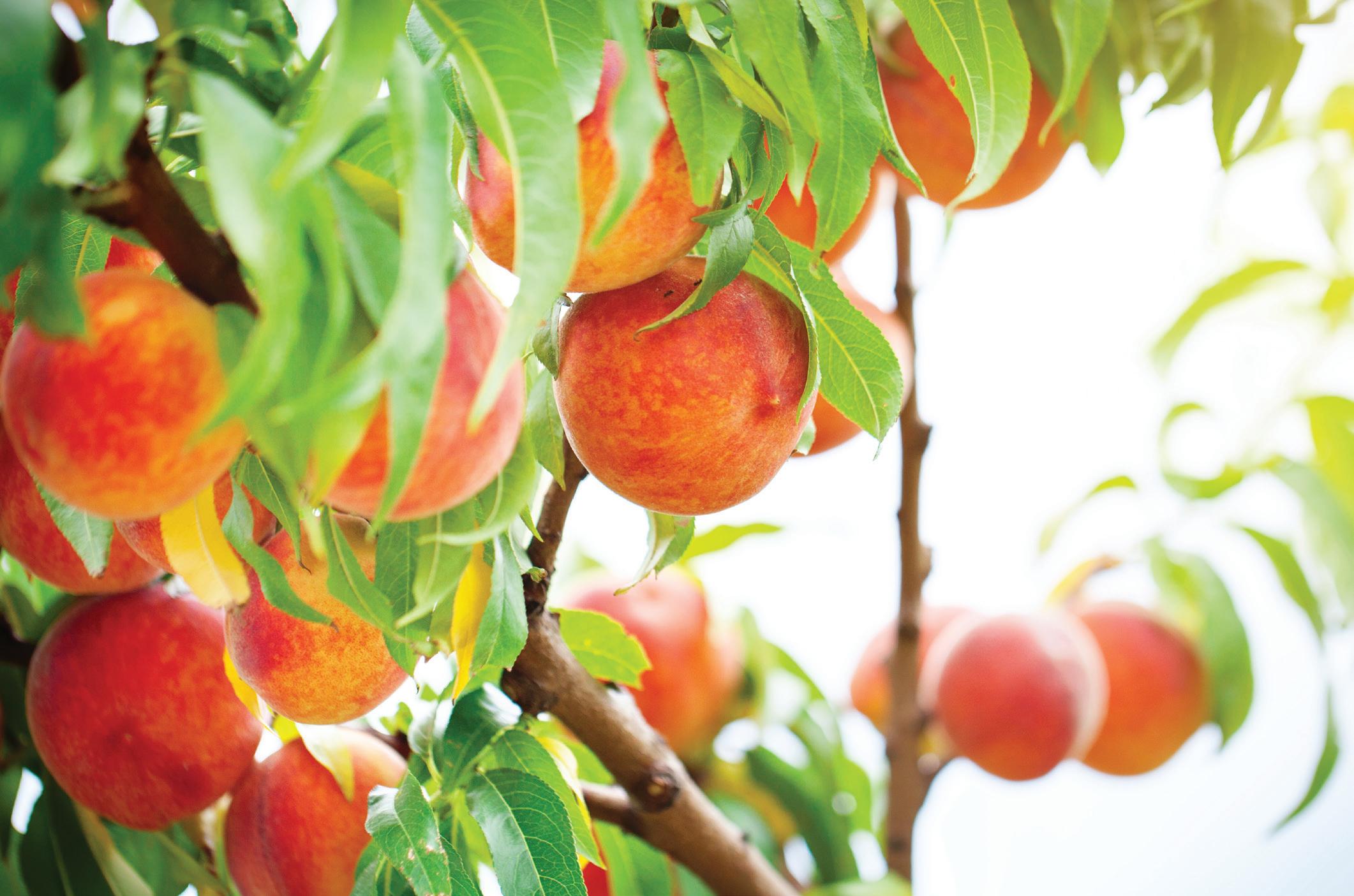
5 minute read
Agriculture
CROP PROTECTION
Using state-of-the-art fermentation and microbiology techniques, we grow and maintain selected Bacillus thuringiensis (Bt) strains, ensuring their identity and quality.
Applied to crops, our products control insects with little to no impact on animals, people, or the environment. Farmers, large and small, use our naturally based products in rotational programs within their crop production strategies in order to avoid resistance development in caterpillar pests and increase the longevity of available tools for crop protection.
DiPel® and XenTari® are keystones of sustainable agricultural practices around the world and align with the goals of the Green Deal and Farm to Fork initiatives in Europe. In Asia, Valent BioSciences has partnered with non-governmental organizations to support smallholder farmers in their fight against the growing threat of fall armyworm.
For more than 50 years, farmers have employed our Bt-based products on hundreds of millions of hectares, producing safe, dependable, high-quality fresh food for billions of people. PACE INTERNATIONAL


Our Pace International subsidiary works with growers, packers, shippers, and agricultural organizations to help meet the growing demand for food while reducing waste and conserving natural resources. Pace’s innovative solutions improve, protect, and preserve fruit and vegetable freshness and quality.
Pace’s ecoFOG® technology, a clean and sustainable alternative to fruit drenching, helps growers save millions of gallons of water a year with no CO2 emissions or soil contamination. In addition, Pace’s decay control and edible coating products reduce spoilage and maintain freshness and quality, protecting hundreds of thousands of tons of produce annually. The 2021 introduction of Pace’s stone fruit coating PrimaFresh® 60 Organic is the latest advancement for Pace’s organic premium line of edible plant-based coatings and another example of how Pace meets the needs of customers by providing a diversified portfolio of innovative, organic, and sustainable solutions.

88
million
acres have been treated with our larvicides since 2017.
1.2
billion
peoples’ lives have been protected from mosquito nuisance and disease since 2017. PUBLIC HEALTH
We are a world leader in developing and providing the most comprehensive range of biorational solutions that protect the public from vector-borne disease and illness and nuisance insects. Global, federal, and local authorities use our proprietary formulations to provide sustainable biological control for a broad range of mosquito species and habitats while minimizing the potential impact on humans, the environment, and other non-target organisms.
In early 2022, the U.S. Environmental Protection Agency granted us an Experimental Use Permit to perform field studies of a new mosquito space spray targeting pyrethroid-resistant adult mosquitoes. Pyrethroid resistance is a worldwide public health threat, as resistant mosquitoes spread deadly and debilitating diseases such as malaria, West Nile virus, dengue, yellow fever, Zika, and others. Our novel adulticide is formulated to achieve a high level of mortality against these resistant populations across multiple species, as well as against pyrethroid-susceptible mosquitoes.
44%
reduction in greenhouse gas emissions was achieved by shipping additional rail cars in place of tanker trucks during the 2021 forestry season.
acres of forest lands in North America have been treated with our biorationals since 2017.
14.55
million


FOREST HEALTH
The world’s forests play a key role in the global carbon cycle, yet nationally, insects and diseases have decreased carbon sequestration from live forest trees by nearly 13 teragrams of carbon per year. That’s according to Frontiers in Forests and Global Change, and it’s equal to the amount of CO2 emissions generated by more than 10 million passenger vehicles driven for one year.
Biorationals play a critical role in managing forest health and helping defend the ability of forests to serve as valuable carbon sinks that absorb CO2 from the atmosphere. We offer two unique products, Foray® and Mimic®, to sustainably protect forests from harmful defoliators while minimizing risk to other beneficial insects and the environment.
To further minimize environmental impact and reduce emissions, we continue to increase our use of rail cars and rely less on tanker trucks to ship products during the forestry season.
BIORATIONAL RESEARCH CENTER AND GLOBAL PARTNERSHIPS
Our team of world-class experts in microbiology, metabolic engineering, fermentation, chemistry, plant physiology, soil health, entomology, plant pathology, and formulation technology drive our innovation in sustainable biorational solutions. Over the years, our research team has earned 370 U.S. patents for their groundbreaking discoveries and delivered significant contributions in technical know-how and trade secret innovations to the organization, especially in the areas of fermentation technology and formulation chemistry. These esteemed professionals work together at our Biorational Research Center in Libertyville, Illinois, within our global Biorational Headquarters.
This state-of-the-art center serves as our global hub for product, research, and development activity. We also have a dedicated Biorational Research Unit at Sumitomo Chemical’s Health & Crop Sciences Research Laboratory in Takarazuka, Japan.
Whether we’re partnering with Sumitomo Chemical, colleagues around the world, academic organizations, or forming industry alliances, we are part of a robust and intertwined global research network with a shared commitment to fostering innovation and sustainability.
KANSAS STATE UNIVERSITY MANHATTAN, KANSAS
In 2021, we announced a formal long-term agreement with Kansas State University (KSU) to advance critical research in soil health and carbon smart farming. Dr. Charles W. Rice, University Distinguished Professor of Soil Microbiology and a world-renowned researcher in carbon cycling and climate change, will lead a KSU team in working with Valent BioSciences (and other Valent BioSciences collaborators) to evaluate how the use of MycoApply, together with soil conservation management practices, can influence soil health.
VALENT U.S.A. SAN RAMON, CALIFORNIA
In collaboration with Valent U.S.A., we launched our first venture with Halo (halo.science) to use its partnering technology platform to help us connect with leading universities, researchers, and start-ups worldwide. We’ve used the platform to identify research partners and established our set of projects to address soil carbon sequestration, to study ecosystem benefits of mycorrhizal fungi colonization, and to identify novel compounds that can bolster our crop protection and crop enhancement portfolios.
Through these and other relationships, including our ongoing collaboration with the Donald Danforth Plant Science Center and Washington University, both located in St. Louis, Missouri, we reach beyond our corporate boundaries to partner with like-minded organizations and apply innovative technologies to help our customers and the planet thrive.





